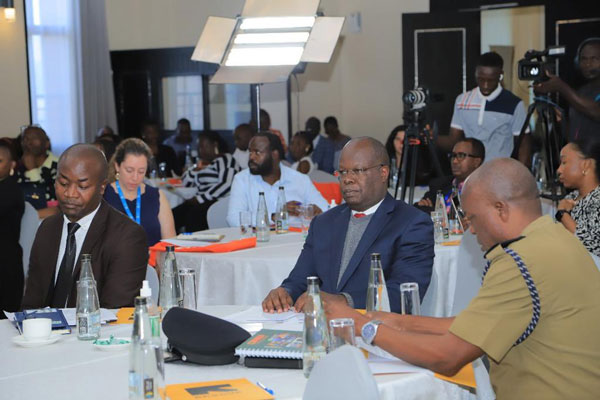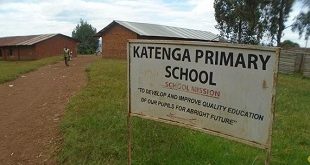
Kampala, Uganda | THE INDEPENDENT | Judicial officers have been called upon to safeguard the rights of refugees and asylum seekers in the country while carrying out their duties. This appeal came to the fore on Friday during the launch of a handbook on Refugee Access to Justice in Kampala. Several speakers, including Supreme Court Justice Christopher Izama Madrama, emphasized the importance of this responsibility.
The handbook was developed by the International Rescue Committee (IRC), a nonprofit organization, in collaboration with the Judiciary of the Republic of Uganda and with support from the Office of the Prime Minister – Department of Refugees. The primary objective, as explained by Diana Kabahuma, the Spokesperson of IRC, is to raise awareness among judicial officers and other stakeholders regarding refugee policies. The handbook aims to enhance access to justice for refugees in Uganda.
The book is expected to empower judicial officers and other stakeholders with a better understanding of the complex landscape of refugee policies and laws in Uganda. Justice Madrama, who served as the Chairperson of the Validation Committee, commended the handbook, noting that it provides knowledge not typically taught in schools. He highlighted that many people are unaware of the legal frameworks related to the needs of refugees.
Madrama emphasized that the judiciary acknowledges the challenges faced by refugees and asylum seekers. These challenges include language barriers, lack of identification documents, resource limitations, knowledge gaps among justice actors, unfamiliarity with Uganda’s legal systems, and geographical barriers, all of which hinder refugees’ access to justice.
Madrama pointed out that refugees sometimes find themselves in conflict with the law, and this handbook will equip judicial officers and other actors with the essential knowledge of the law and relevant institutions. “I would like to assure you that the judiciary remains committed to the effort of collaboration among stakeholders. We are committed to leading the conversation regarding the humanitarian justice sector reforms. Our institution is committed to employing alternative yet effective measures of dealing with refugees who come into contact with or conflict with the law,” said Madrama.
Madrama shared an anecdote in which he was informed that Somalians living in Uganda had never won any legal case. He questioned whether this was due to language barriers or prejudice. He expressed his hope that the handbook’s impact would not only aid refugees in accessing justice but also ensure that everyone, regardless of their background, can access justice in Uganda.
Madrama called on the Justice Law and Order Sector member institutions to continue actively participating in the humanitarian justice sector forum and to support government efforts to protect and advance the rights of refugees in Uganda.
As of May 2023, Uganda was hosting 1,547,981 refugees and asylum seekers. New arrivals continued to enter the country, mainly from the Democratic Republic of the Congo and South Sudan. Since the beginning of the year, Uganda has received 30,448 refugees from the DRC and 16,067 from South Sudan, according to the United Nations High Commissioner for Refugees-UNHCR Operation Update.
During the same event, High Court Civil Division Judge Dr. Douglas Singiza, who had been appointed as a Judge in May 2022, urged everyone to use the handbook as an essential resource on refugee matters. He explained that the handbook enhances knowledge on access to justice for refugees, and he encouraged judicial officers to apply the knowledge they gained from it.
Singiza also called upon everyone, especially journalists, to disseminate this information widely, underscoring that anyone can become a refugee due to conflicts and violence. He emphasized the importance of showing Uganda’s commitment to supporting refugees.
****
URN
 The Independent Uganda: You get the Truth we Pay the Price
The Independent Uganda: You get the Truth we Pay the Price


